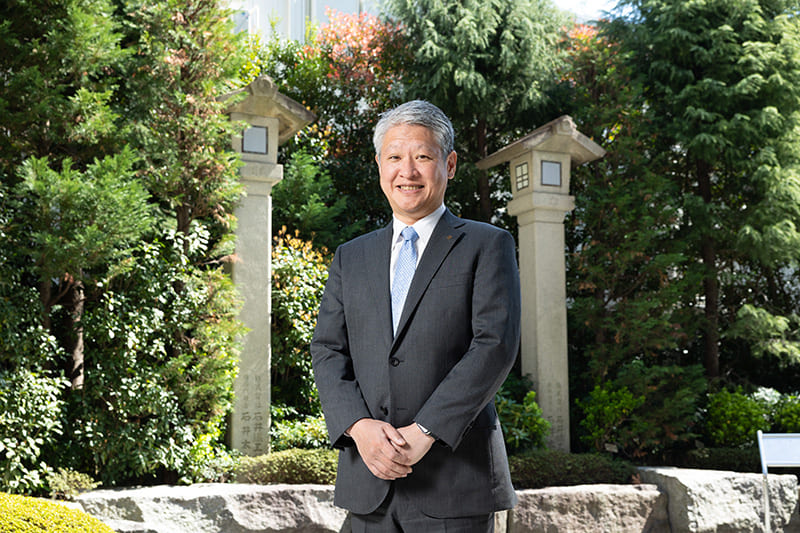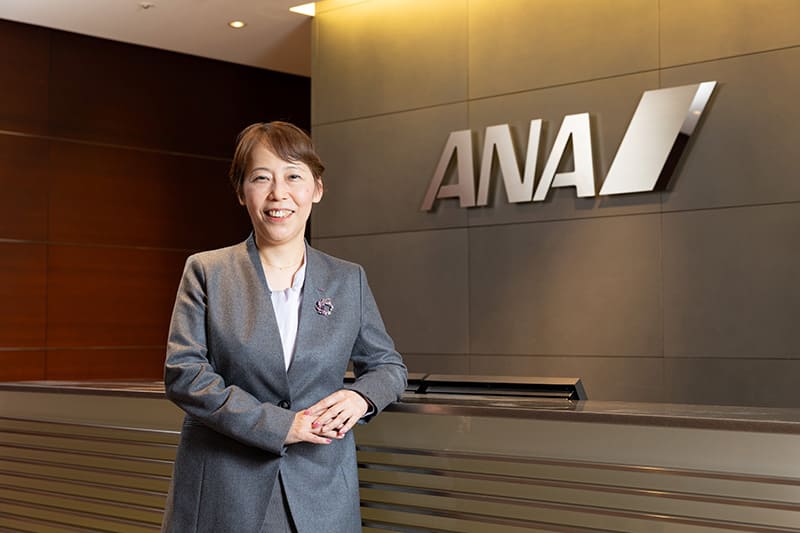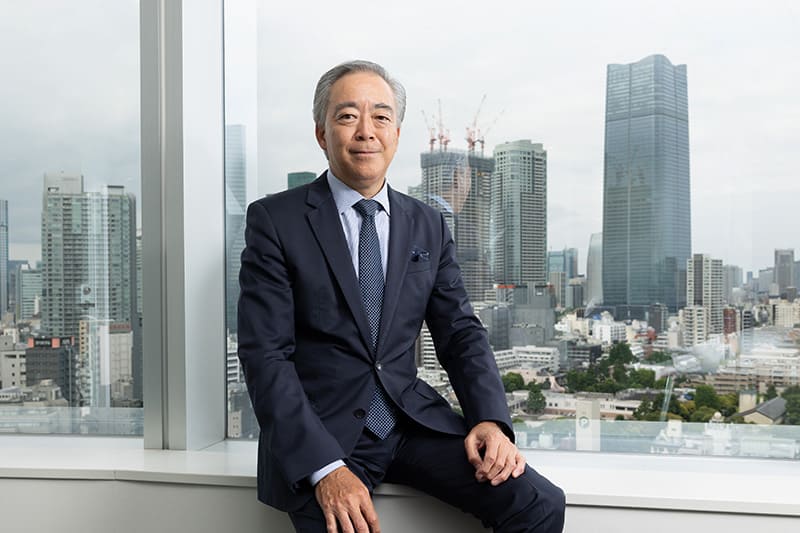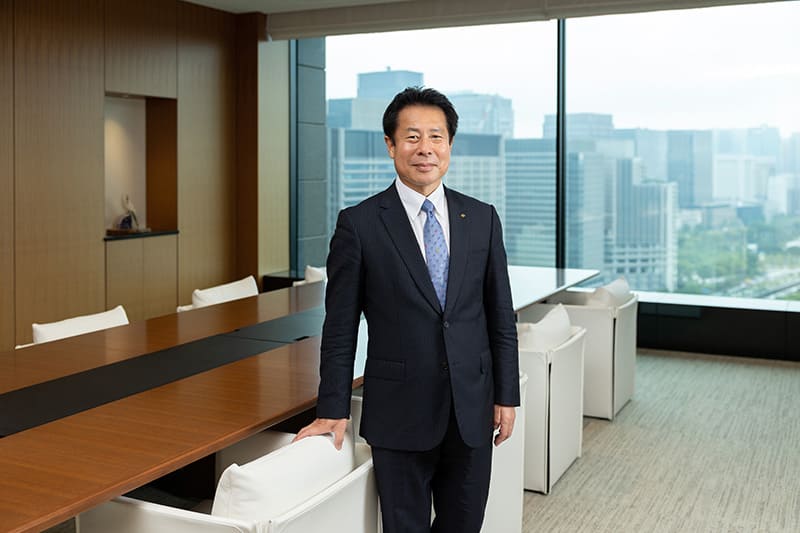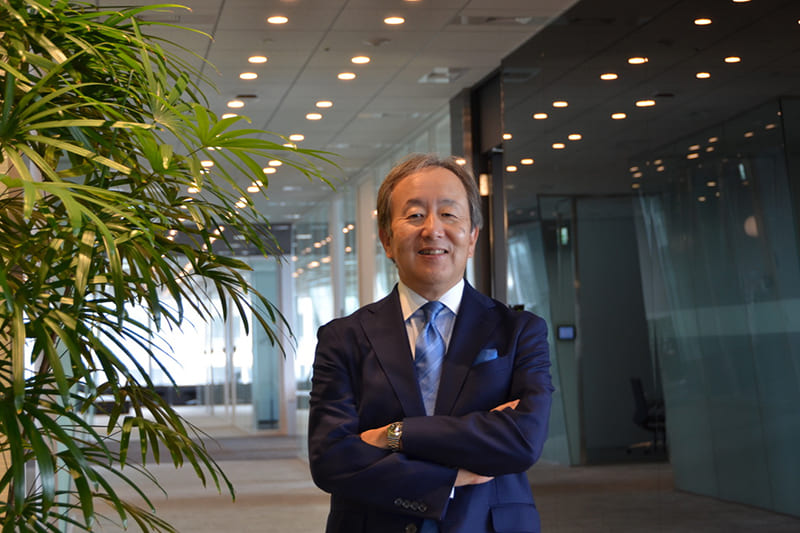July 28, 2025
Tokyo Gas lights the way to carbon neutrality
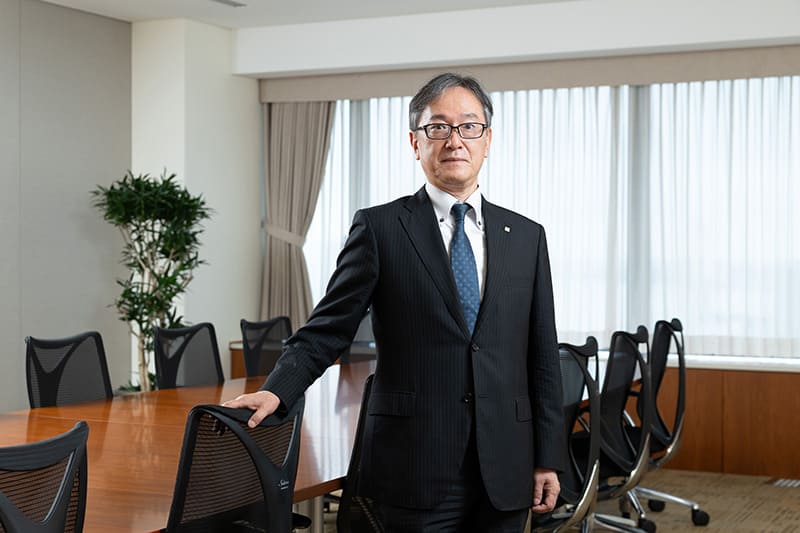
Social responsibility is deeply rooted in Tokyo Gas Co., not only because the company supplies a resource that is important for society, but also because it was founded by “the father of Japanese capitalism.”
Tokyo Gas began in 1885 as one of about 500 companies launched by Eiichi Shibusawa (1840-1931), considered the country’s first venture capitalist, financier and serial entrepreneur. Japan was struggling to emerge from feudalism and catch up with Western nations. Shibusawa, whose portrait has been on the ¥10,000 bill since last year’s redesign, continues to impart his principles to business professionals even today through his works including “The Analects and the Abacus,” which emphasizes both economic and ethical values.
“We started our business by pursuing what we needed to do for society — turning on gas lights when Japan opened up the country,” Taku Minami, the CFO and managing executive officer of sustainability, said in a recent interview, part of a monthly series conducted by Naonori Kimura, a partner for the consulting firm Industrial Growth Platform Inc. Gas lights became symbolic of Western culture following the end of isolationism during the Edo Period.
“We’re always aware of the significance of acting as a company with public interests,” he said, adding that it especially has paid attention to three things: avoiding accidents, making people feel safe about gas and its infrastructure, and gaining the public’s trust.
Today, the energy group has annual sales of ¥2.64 trillion ($18 billion), more than 15,000 employees, 64,000 kilometers of gas pipes and 13 million customer contracts for gas, power and other services.
It now sees increasing potential in overseas business. It has accelerated its investment in shale gas production in the United States, developed infrastructure for liquefied natural gas in Southeast Asia, joined an LNG project in Australia and worked on renewable energy development in Europe. Its overseas profit is expected to reach ¥67 billion for the business year to March 2026 — more than 25% of its group net profits, meeting a goal first outlined in the company’s 2019 report to generate a quarter of its profits from overseas business by 2030.
In 2023, Tokyo Gas started a new brand called Igniture, combining “ignite” and “future,” aiming to provide comprehensive energy services, ranging from consultation to equipment sales to maintenance, that would become the company’s third pillar, alongside supplying gas and power. It will help individual, corporate and community customers improve their energy efficiency not only in gas but also through power systems, solar panels and storage batteries.
The company also plans to grow its technological base through a wholly owned venture capital firm in Silicon Valley. “In the coming years, we will step up our efforts to acquire essential technologies from other entities or form alliances,” Minami said, adding that the company is seeking new business seeds related to carbon neutrality and automation.

He said Tokyo Gas has faced three critical points in its 140-year history. The first one was its foundation in 1885 by Shibusawa. The second was in 1969, when it started to import liquefied natural gas. A more efficient form of energy than coal and petroleum, LNG was new to Japan at the time but was necessary to meet demand as industry thrived amid postwar economic growth. LNG emits less carbon and is widely thought to be more environmentally friendly. The third development is underway now, helping to meet the need for achieving net-zero carbon emissions due to accelerating climate change worldwide.
Tokyo Gas declared its ambition to achieve net-zero CO2 emissions by 2050 in 2019, and in 2024 announced a detailed road map toward achieving this goal. Its approaches to reaching net-zero emissions included lowering emissions throughout the LNG supply chain, introducing methanation (the chemical production of gas) and more renewable energy, increasing customer options for producing and storing power, and supporting technical innovations.
In the road map, the transition period to carbon neutrality plays an important role, Minami said: “We think of LNG as a very important energy for the transition until the mid-2030s and even beyond. With that in mind, we will further convert fossil fuels to LNG during that period.” Tokyo Gas will also promote high-efficiency gas equipment while at the same time investing in hydrogen and other green energy, he said. “In 2040 and afterward, we will head toward net zero while developing technologies necessary to reach that goal,” Minami added.
As for renewable energy, Tokyo Gas is working on handling more solar, biomass and wind power. For example, it has joined a consortium aiming to operate a fixed-bottom offshore wind farm in Yamagata Prefecture in 2030 and invested in a U.S. firm with design technology for floating wind turbines.
Minami said corporate sustainable strategies are inevitable despite some countries’ backpedaling on climate commitments. In January, the United States exited the Paris climate accord, in which governments agreed in 2015 to limit global warming to 1.5 degrees Celsius above preindustrial levels. “In the long term, carbon-neutral policies must continue, despite changes in speed and external factors over time,” he said.
To survive in a rapidly changing society, human capital is important. To make this intangible capital visible to investors, it is crucial to disclose data such as the percentage of female managers, the duration of child care leave for men and the proportion of employees undergoing reskilling.
It is also important to create portfolios of human resources, Minami said. The company has classified expertise in each field and helped workers to be aware of which levels they have attained. Simultaneously, it urges managers to acknowledge issues they need to tackle and set objectives for them. The company is also preparing a human resource system that includes external recruitment and an internal free agent program.
“As market demand becomes more complex and customer needs more detailed, it is hard to respond by using uniform, inflexible strategies. We recognize the importance of leveraging diverse human resources to achieve our best performance,” Minami said.
Naonori Kimura
Industrial Growth Platform Inc. (IGPI) Partner
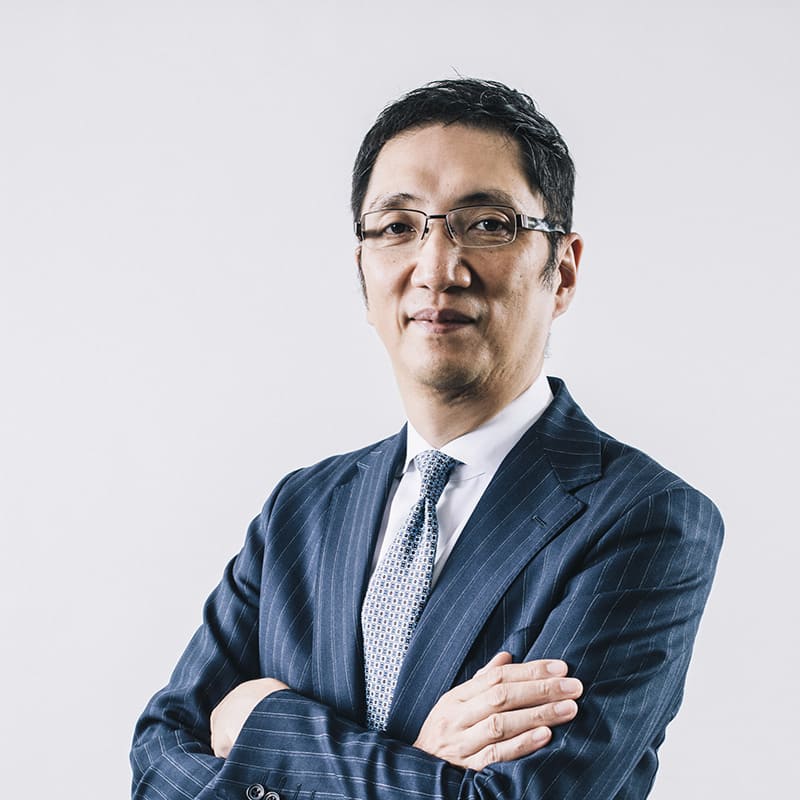
Tokyo Gas declared its aim to achieve net-zero CO2 emissions by 2050 in 2019 and defines this current transitional period as its “third founding.” It is noteworthy that the management aims to not just address carbon neutrality, but also advance the transformation of the entire company, organizational capabilities and HR development.
Since its establishment by Eiichi Shibusawa in 1885, Tokyo Gas has consistently supplied gas, an essential form of energy for social life and economic activity, for 140 years. Throughout this period, it has maintained safety, security and trust, and has developed a nature that resonates with Shibusawa’s “The Analects and the Abacus,” growing together with the community. As the services demanded by customers and society change, Tokyo Gas evolves to meet those needs, Minami emphasized. Solutions branded under Igniture are indispensable during the transition to decarbonization, bringing significant social benefits while also enhancing the company’s value.
Decarbonizing energy faces many hurdles, requiring long-term investments. Therefore, strengthening earning power in the short to medium term is also necessary. Tokyo Gas is faced with very challenging management decisions, but through the third founding it is expected to evolve into a more resilient organization and become an indispensable part of sustainable development in Japan and the world.

